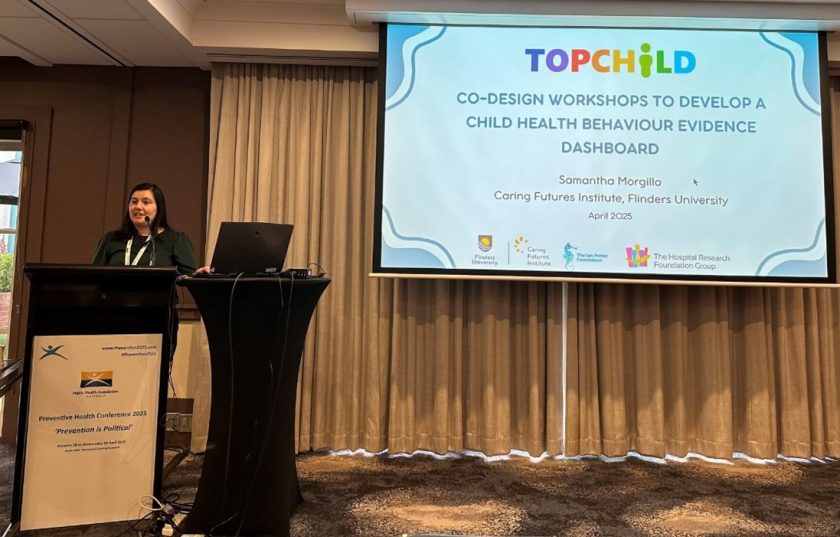
Highlights from the Preventive Health 2025 Conference in Canberra, ACT
Samantha Morgillo, Research Assistant at Caring Futures Institute (Flinders University), and EPOCH-Translate EMCR affiliate, reflects on her experience attending the Preventive Health 2025 Conference
On 28-30 April, I attended the Public Health Association of Australia’s Preventive Health 2025 Conference in Canberra, ACT. This year’s theme, ‘Prevention is Political’, was highly relevant in the context of the upcoming Australian federal election. I had the opportunity to share findings from the TOPCHILD-Policy co-design workshops as a long oral presentation. I also co-presented the workshop titled ‘Co-Design for Preventive Health: Key Components and Practical Applications’ with collaborators from NSW Hunter New England Population Health.
The oral presentation highlighted findings from the TOPCHILD-Policy workshops (part of EPOCH-Translate Stream 1), which focused on co-designing a child health behaviour evidence dashboard to support evidence-based decision-making in policy and practice settings in the early years system. The audience included policymakers, practitioners, and researchers who may be potential end-users of the dashboard.
Presenting at the workshop was a great opportunity to connect with collaborators and share experiences using co-design methodology. We presented a case study from the TOPCHILD-Policy co-design workshops to share practical learnings. The session was attended by 54 participants, providing excellent networking opportunities. These conversations led to invitations for future collaboration.
Attending the conference gave me the opportunity to share my research findings, meet collaborators in person, and learn about other public health research and initiatives taking place across Australia. It was also my first time presenting in a workshop, which helped to develop my presentation and facilitation skills. Overall, the conference increased my knowledge of public health research and provided insights into the political environment and the impacts of public health policy.




